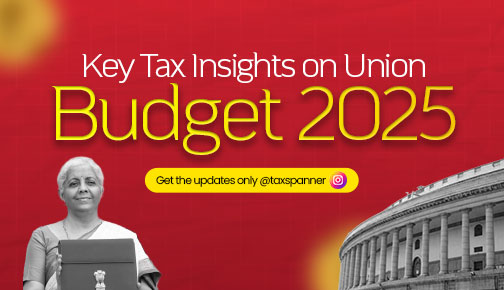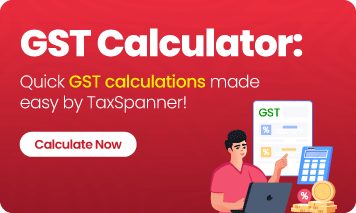Navigating GST Exemptions: Key Insights for Businesses and Consumers
The Goods and Services Tax (GST) in India is designed to streamline taxation and improve compliance. However, certain goods, services, and businesses are exempt from GST to reduce the financial burden on essential sectors. Understanding these exemptions helps businesses and consumers navigate the tax system effectively.
What is GST Exemption?
GST exemption means that specific goods, services, or entities are not required to pay GST, either partially or completely. These exemptions exist to promote economic welfare, protect small businesses, and support essential services.
Types of GST Exemptions
GST exemptions fall into three main categories:
- Absolute Exemptions
These goods and services are completely exempt from GST without any conditions.
Examples:
- Unprocessed agricultural produce
- Education services by recognized institutions
- Healthcare services by hospitals
2. Conditional Exemption
Exemptions apply under specific conditions.If the conditions are not met,GST is applicable.
Examples:
- Hotel accommodation under Rs. 1,000 per day
- Services provided by charitable institutions for non-commercial purposes
3. Exemptions Based on Threshold Limits
Small businesses and individuals are exempt if their aggregate annual turnover is below a specified threshold.
| Business Type | Threshold Limit (Annual Turnover) | |
|---|---|---|
| Normal Category States | Rs 40 lakh (for goods), Rs 20 lakh (for services) | |
| Special Category States | Rs 20 lakh (for goods), Rs 10 lakh (for services) |
List of GST-Exempt Goods
Some goods are entirely exempt from GST due to their essential nature.
| Category | Exempt Goods | |
|---|---|---|
| Agricultural Products | Fresh fruits, vegetables, grains, milk, eggs | |
| Healthcare | Blood, human organs, contraceptives | |
| Education | Printed books, newspapers | |
| Handicrafts | Handmade jute & bamboo products |
List of GST-Exempt Services
Certain services are not taxed under GST to promote welfare and accessibility.
| Category | Exempt Services | |
|---|---|---|
| Education | School education, recognized training programs | |
| Healthcare | Medical services, ambulance services | |
| Banking | Basic savings accounts, cheque book issuance | |
| Government Services | Public libraries, police services |
Impact of GST Exemptions
- Consumers: Lower costs on essential goods and services
- Businesses: Compliance relief for small enterprises
- Government: Revenue loss but increased accessibility of essential services
In the Goods and Services Tax (GST) system in India, different types of supplies are categorized based on their tax treatment. Understanding the distinctions between Exempt, Nil Rated, Zero Rated, and Non-GST supplies is crucial for businesses to determine tax liabilities and input tax credit (ITC) eligibility. The table below highlights the key differences among these categories.
Differences between Exempt, Nil Rated, Zero Rated, and Non-GST supplies:
| Category | GST Applicability | Input Tax Credit (ITC) Availability | Examples |
|---|---|---|---|
| Exempt Supplies | No GST is charged on the supply | Not available; suppliers cannot claim ITC. | Fresh fruits, vegetables, milk, healthcare services provided by clinical establishments. |
| Nil Rated Supplies | GST rate is 0%, meaning no tax is charged | Not available; suppliers cannot claim ITC | Certain agricultural products, unprocessed cereals, and specific types of books |
| Zero Rated Supplies | GST rate is 0%, typically for exports and supplies to SEZs | Available; suppliers can claim ITC on inputs used for these supplies | Exports of goods and services, supply to Special Economic Zones (SEZs) |
| Non-GST Supplies | These supplies do not fall under the GST framework | Not available; suppliers cannot claim ITC | Petroleum products, alcohol for human consumption, stamps, and currency |
Knowing these classifications helps businesses comply with GST regulations and optimize tax benefits. While Exempt and Nil Rated supplies do not attract GST, Zero Rated supplies allow ITC claims, making them beneficial for exporters. Meanwhile, Non-GST supplies fall outside the GST scope entirely. Proper classification ensures accurate tax filings and compliance with Indian tax laws.Top of Form
Recent Updates on GST Exemption Regulations
The 54th GST Council Meeting (September 2024) introduced several key amendments to improve tax compliance and ease filing processes. Below is a summary of the latest changes:
- Amendments in GSTR-1 Filing
New Form GSTR-1A
Taxpayers can modify or update GSTR-1 within the same tax period before filing GSTR-3B.
Lower B2C Reporting Threshold
The limit for reporting interstate B2C supplies in GSTR-1 (Table 5) has been reduced from Rs 2.5 lakh to Rs 1 lakh.
2. Compliance & Due Date Changes
Revised GSTR-4 Due Date
Composition taxpayers can now file GSTR-4 by 30th June (instead of 30th April), effective FY 2024-25.
Mandatory GSTR-7 Filing
Even if no TDS is deducted, taxpayers must file GSTR-7 with a nil return (no late fees applicable).
Annual Return Exemption
Businesses with an annual turnover of up to Rs 2 crore are exempt from filing GSTR-9/9A for FY 2023-24.
3. Updates to Input Tax Credit (ITC) Provisions (Section 16)
Standardized ITC Deadline
The cut-off date for claiming ITC for previous fiscal years is now 30th November 2021, retrospectively effective from 1st July 2017.
ITC on Revoked Registrations
Taxpayers can claim ITC for returns filed within 30 days of revoking a cancelled GST registration.
4. Relief in Interest & Penalties
Interest Waiver on Cash Ledger Balance (Rule 88B)
No interest will be charged if GSTR-3B is filed late, provided funds were available in the electronic cash ledger by the due date.
Section 128A – Interest & Penalty Waiver
No interest or penalties for demand notices under Section 73 for FY 2017-20, if full payment is made by 31st March 2025.
Extended Time for Demand Notices (Sections 73 & 74)
Time for reduced penalties increased from 30 days to 60 days.
5. GST Appeals & Monetary Limits
Revised Appeal Limits
- Rs 20 lakh – Appeals to the GST Appellate Tribunal (GSTAT)
- Rs 1 crore – Appeals to High Courts
- Rs 2 crore – Appeals to the Supreme Court
Lower Pre-Deposit for Appeals
- GSTAT appeals – Reduced from 20% to 10% (max Rs 20 crore under CGST/SGST).
- General appeals – Pre-deposit cap lowered to Rs 20 crore (from Rs 25 crore).
6. Sunset Clause & New Regulations
Anti-Profiteering Cases
New applications accepted only until 1st April 2025; pending cases will transition to GSTAT.
GSTAT Appeal Deadline
Taxpayers will have three months to file appeals after the Government notifies the effective date.
New Section 11A
Allows regularization of GST non-levy or short-levy caused by trade practices.
7. Refunds & Export Provisions
IGST Refunds for Revised Export Prices
Refunds allowed on upward price revisions after exports, subject to new mechanisms.
No IGST Refund for Duty-Paid Exports
Exports/supplies to SEZ units where export duty applies will not receive IGST refunds.
8. Other Key Amendments
Biometric-Based Aadhaar Authentication
Phased implementation of Aadhaar-based authentication for GST registration.
DRC-03 Adjustments for GST Appeals
Guidelines will clarify how DRC-03 payments can be adjusted for GST appeal deposits.
Clarifications on E-Commerce Operator Penalties (Section 122)
Effective from 1st October 2023, penalties under Section 122 will apply only to e-commerce operators required to collect TCS under Section 52.
These updates aim to streamline tax compliance, reduce the compliance burden for small businesses, and enhance clarity in GST regulations.Bottom of Form
In conclusion, GST exemptions play a vital role in guaranteeing affordability and accessibility in key sectors. Businesses must stay updated on exemption rules to ensure compliance while benefiting from tax relief. If you deal with exempt goods or services, understanding the exemptions can help you plan finances better and stay tax-compliant. For further guidance, consult a tax expert at TaxSpanner or visit the official GST portal.
Explore TaxSpanner's wide range of calculators for your tax planning and calculations!
View Tools & Calculators





